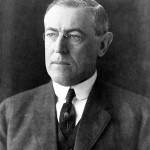Tag Research
Greenhouse gas carbon dioxide ramps up aspen growth
The rising level of atmospheric carbon dioxide may be fueling more than climate change. It could also be making some trees grow like crazy.
Giant collider back in gear, sets record for collision intensity
On Nov. 30, the world's largest scientific instrument, the Large Hadron Collider, set a record when it smashed one stream of protons against another and then accelerated the beams to 1.18 trillion electron volts, exceeding the record held by Fermilab in Illinois since 2001.
Exhibit explores state of science at time of Darwin’s book
“Science Circa 1859: On the Eve of Darwin’s Origin of Species,” opening Monday, Nov. 23, in the Department of Special Collections at Memorial Library, explores the state of science before Charles Darwin’s groundbreaking book arrived on the scene 150 years ago.
Like humans, ants use bacteria to make their gardens grow
Leaf-cutter ants, which cultivate fungus for food, have many remarkable qualities.
Sweet corn story begins in UW–Madison lab
This week, scientists are revealing the genetic instructions inside corn, one of the big three cereal crops. Corn, or maize, has one of the most complex sequences of DNA ever analyzed, says University of Wisconsin–Madison genomicist David Schwartz, who was one of more than 100 authors in the article in the journal Science.
After mastodons and mammoths, a transformed landscape
Roughly 15,000 years ago, at the end of the last ice age, North America's vast assemblage of large animals - including such iconic creatures as mammoths, mastodons, camels, horses, ground sloths and giant beavers - began their precipitous slide to extinction.
UW-Madison receives $9.5 million Gates Foundation grant
The University of Wisconsin–Madison has received a five-year, $9.5 million grant from the Bill and Melinda Gates Foundation to identify virus mutations that would serve as early warnings of potential pandemic influenza viruses.
Early voting option can decrease turnout, research shows
Although states are moving quickly to put in place election procedures that allow for early voting, allowing people to cast ballots ahead of Election Day often results in lower turnout, according to research from a team of University of Wisconsin–Madison political scientists.
Warmer means windier on world’s biggest lake
Rising water temperatures are kicking up more powerful winds on Lake Superior, with consequences for currents, biological cycles, pollution and more on the world's largest lake and its smaller brethren.
African-American men at higher risk of false positives in prostate testing
While an elevated prostate-specific antigen (PSA) test can be frightening news for men, new research shows that sometimes the levels are caused by a naturally…
Study: Can meditation sharpen our attention?
A new study at the University of Wisconsin–Madison suggests that people can train their minds to stay focused.
FDA-approved drugs eliminate, prevent cervical cancer in mice
Researchers at the University of Wisconsin–Madison School of Medicine and Public Health have eliminated cervical cancer in mice with two FDA-approved drugs currently used to treat breast cancer and osteoporosis.
Now hear this: Mouse study sheds light on hearing loss in older adults
Becoming "hard of hearing" is a standard but unfortunate part of aging: A syndrome called age-related hearing loss affects about 40 percent of people over 65 in the United States, and will afflict an estimated 28 million Americans by 2030.
History professor writes definitive Woodrow Wilson biography
After a meteoric rise to the nation’s highest office, a new president working to make major structural changes to government and the economy enjoys majorities in Congress, but faces an unwillingness from opponents to cooperate with him.
Faculty Senate approves resolution to slow research overhaul
A proposed reorganization of the Graduate School will be slowed down until university administrators have responded to an upcoming review of the plan, under a…
Economist takes on global debt crisis in classroom, book, blog
As the financial markets melted down last fall, University of Wisconsin–Madison economist Menzie Chinn says he was surprised not only by the depth of the economic downturn that set in, but also by the certainty of Monday-morning quarterbacking from observers of the government's response to the crisis.
Street markets are this professor’s laboratory
Alfonso Morales didn’t sit in a library to do research for his graduate degrees. Instead, he worked as a vendor in Chicago’s famed Maxwell Street Market, where he saw firsthand that public markets serve as fertile ground for entrepreneurs and new businesses, gathering places for communities and an entry point into the economy and society for new arrivals to the United States.
Middle East air-quality study bridges borders
An unprecedented effort to collect air pollution data in the Middle East has united researchers in a region mired in conflict.
Muscle mass maintenance under scrutiny
When muscles are not pressed into service, they begin to lose mass.













